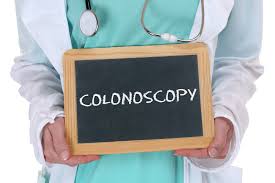Colonoscopy
 Information About Colonoscopy
Information About Colonoscopy
Your referring doctor has asked you to have a Colonoscopy. This is an examination of the lining of the colon, or large bowel. The procedure is performed using a telescope like instrument with a tiny camera attached to the end that is passed into your bowel and allows the doctor to closely examine its lining. The doctor can also use this instrument to take tissue samples, remove polyps and perform other minor surgical procedures. The examination can take from 15 to 45 minutes and is performed while you are sedated with short-acting anaesthetic. A further information sheet detailing Colonoscopy can be downloaded from www.gesa.org.au
One common finding is that of polyps. These are wart-like growths that occur in the bowel in about a third of people. These have the potential to become cancerous and will usually be removed during Colonoscopy. The samples will be sent to pathology to assist in determining further treatment requirements.
You can expect to be at the hospital for up to 4 hours. Because of the anaesthetic, you will not be able to drive a car until the next day. We strongly recommend that you have a responsible adult to be with you at home after the procedure.
Colonoscopy is a very safe medical procedure. The potential risks mainly relate to:
- Colonoscopy may not find the cause of your symptoms. Colonoscopy has been reported to miss small polyps and there are reported cases of cancer being diagnosed within a few years of an apparent normal colonoscopy. Colonoscopy and polyp removal have however been clearly shown to significantly reduce the risk of future bowel cancer
- Abdominal cramps or altered bowels – occasionally occur for a day or so after colonoscopy. In rare cases might prevent return to work the next day.
- Bleeding after removal of polyps (risk about 1 in 500). Can occur up to 17 days after Colonoscopy. Can require hospitalisation and repeat colonoscopy to treat.
- Damage or perforation (risk about 1 in 3000). Mainly related to removal of larger polyps. Symptoms will usually manifest within 24 hours of the procedure and usually while you are still at the hospital. Can require hospitalisation and possibly surgery to repair
- Rare (less than 1 in 3000) cases of diverticulitis, appendicitis or spleen injury have been reported and attributed to Colonoscopy
You will have the opportunity to discuss these and other issues with your gastroenterologist before the procedure starts. After that, you will be asked to sign a consent form to go ahead with the procedure.
Following the Colonoscopy
You will be briefly sleepy after the procedure and can sometimes wake up with a bloated feeling but generally people feel mostly back to normal again before leaving the hospital. The endoscopy unit nurses will look after you until you are ready to leave and you may eat and drink once you are fully awake. You will get the results of the procedure before you go home.
The sedative may affect your judgement for at least 12 hours following the procedure. You must not drive or operate machinery during this time. Alcohol intake should be minimized.
You may have some discomfort from bowel gas or, uncommonly, irritation at the intravenous injection site. If you have a polyp removed, there may be traces of blood in your first bowel action. If you are concerned about these or any other symptoms in the days after your procedure then you may need to contact our offices, the Endoscopy Unit or your General Practitioner.


